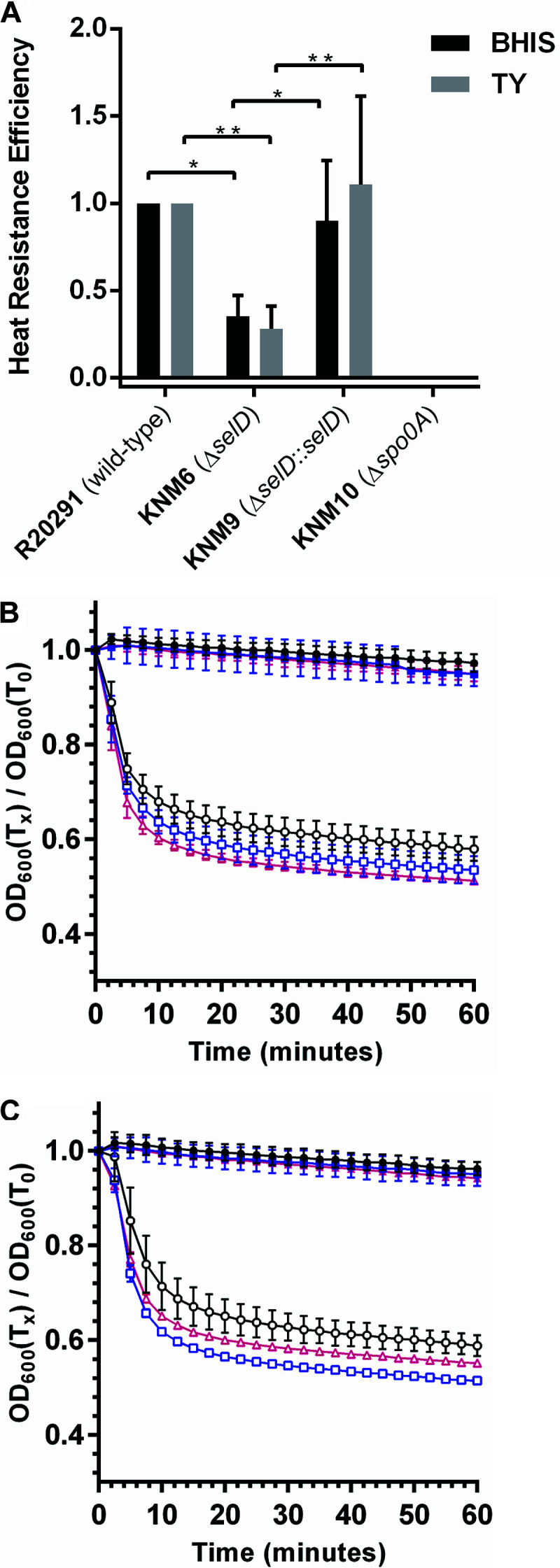FIG 3.

selD plays a significant role in sporulation and has no significant effect on germination of C. difficile spores. (A) C. difficile R20291 (wild-type), C. difficile KNM6 (ΔselD), C. difficile KNM9 (ΔselD::selD+), and C. difficile KNM10 (Δspo0A) strains were allowed to sporulate for 48 h. Cells were harvested and separated into heat-treated and untreated aliquots. The heat-treated samples were heated at 65°C for 40 min. Both heat-treated and untreated samples were serially diluted in PBS and plated onto BHIS-TA. CFU were enumerated and efficiencies were calculated. The data represent the averages from three biological replicates, and error bars represent the standard error of the mean. Statistical significance was determined using a two-way ANOVA with Tukey’s multiple-comparison test (*, P ≤ 0.05; **, P ≤ 0.01), and the C. difficile KNM10 (Δspo0A) strain was excluded from statistical analysis. (B and C) Purified C. difficile R20291 (wild-type) (circles), C. difficile KNM6 (ΔselD) (squares), and C. difficile KNM9 (ΔselD::selD+) (triangles) spores were suspended in (B) BHIS (squares) or TY (C) (triangles) medium supplemented with 10 mM taurocholate (open symbols) or without taurocholate (closed symbols). The change in OD600 during germination was measured over time at 37°C. The data represent the average of three biological replicates and error bars represent the standard deviation from the mean.
